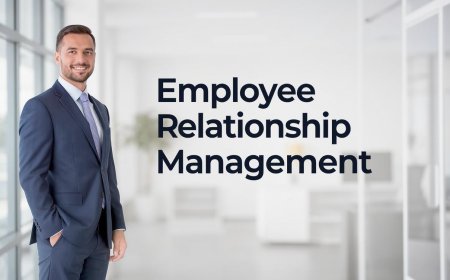Mastering B2B Automation in the New Era

Modern B2B demand generation relies heavily on efficiency and precision this is where B2B Marketing Automation comes into play. As companies juggle longer buying cycles, multiple stakeholders, and complex content journeys, automation helps streamline, scale, and optimize marketing efforts. With personalized messaging, intelligent lead scoring, and triggered nurture paths, marketing automation has evolved from a nice-to-have to a strategic imperative in 2025.
What Exactly Is B2B Marketing Automation?
B2B Marketing Automation refers to using software tools to automate repetitive marketing tasks from email workflows and ad retargeting to lead qualification and engagement scoring. Rather than manually managing every campaign and touchpoint, marketers configure rules and triggers that guide prospects through a tailored buyer journey. This approach combines CRM, content management, and analytics to create a seamless, automated experience for both marketer and prospect.
Why Automation Matters in Complex B2B Salesforce
The B2B buying process is notoriously complex multiple stakeholders, long cycles, and heavy research make it hard to maintain consistent outreach. Automation helps brands maintain relevance across multiple touchpoints without overwhelming human resources. Workflows can trigger follow-up emails, content offers, or task reminders to sales reps, ensuring prospects move steadily through the funnel. In 2025, this orchestration is critical to outperforming competitors and reducing lead leakage.
Accelerating Lead Nurturing Through Automated Workflows
One of the most effective use cases of B2B Marketing Automation is lead nurturing. Prospects consume content at different stages awareness, consideration, decision and automation enables graded follow-ups with relevant assets. For example, after downloading a whitepaper on industry trends, an automated sequence might send a case study, an invite to a webinar, and a sales outreach. This nurtured progression increases engagement and readiness to buy.
Improving Lead Quality with Scoring and Segmentation
Not all leads are sales-ready and automation tools excel at dividing the wheat from the chaff. By assigning scores based on behavior (email opens, demo requests, page views) and firmographics (company size, role, industry), automation platforms help marketers and sales teams focus on qualified opportunities. Automated segmentation ensures that messaging remains relevant C-level executives receive high-level insight, while technical users see product demos or specs.
Scaling Personalized Engagement at Enterprise Scale
Engaging thousands of prospects individually is impossible without automation. Modern platforms offer dynamic content, personalization tokens, and behavioral triggers to deliver relevant messaging at scale. Automated ad campaigns can show different case studies to different segments, while triggered emails can address specific pain points. This level of personalization enhances ROI and brand resonance in large-scale B2B campaigns.
Enhancing Campaign Insights Through Analytics
Data-driven decision-making is at the heart of B2B Marketing Automation. Because every touchpoint email, ad, landing page is tracked and tagged, marketers gain comprehensive insights into campaign performance. Analytics dashboards show what content resonates, which sequences convert, and where leads drop off. These insights enable rapid iteration and optimization in 2025s fast-paced marketplace.
Integrating Automation with ABM and Account-Based Marketing
Account-Based Marketing (ABM) and B2B Marketing Automation are a natural fit. Automation platforms can trigger account-specific workflows when an account shows intent sending tailored content to key stakeholders, scoring engagement at the account level, and notifying sales reps when specific thresholds are met. This tight integration fuels precision targeting and uplifts pipeline from high-value accounts.
Reducing Manual Workload and Increasing Efficiency
Marketing operations teams are often stretched thin. Automation reduces manual burdens by handling repetitive tasks campaign deployment, lead enrichment, data cleanup, event reminders, and more. This improves campaign cadence and lets teams focus on strategy and creative planning. In 2025, efficiency translates directly into growth, as brands with faster velocity capture more market share.
Fueling Agile Marketing Through Rapid Testing
Automation platforms support A/B testing, workflow versioning, and analytics to enable agile experimentation. Marketers can test subject lines, content formats, CTA placements, and outreach timing all under one roof. This experimental environment supports continuous improvement and drives stronger results, improving each campaigns B2B Marketing Automation impact.
Ensuring Compliance and Privacy at Scale
With global compliance demands such as GDPR, CCPA, and evolving privacy standards, maintaining data integrity is non-negotiable. Automation platforms support compliance through built-in opt-in management, cookie tracking controls, and audit trails. They help enforce consent policies across all messaging ensuring trustworthiness and legal safety in 2025s privacy-first environment.
Overcoming Common Automation Challenges
Adopting automation is not without pitfalls. Common challenges include misaligned workflows, poor data hygiene, underdefined scoring models, and lack of cross-team alignment. To succeed, teams must define clear goals, maintain clean CRM and email lists, build service-level agreements between teams, and review automation performance continuously.
Measuring the Impact of Automation on Revenue
Ultimately, the success of B2B Marketing Automation is reflected in business outcomes. Key metrics include:
- Marketing-qualified leads (MQLs) generated
- Lead-to-opportunity conversion rate
- Pipeline influence by automated campaigns
- Sales cycle duration
- Customer acquisition cost (CAC)
When automation delivers consistent lead flow, faster deliverables, and better conversions, it proves its merit and marks a shift from tactical tech to strategic revenue engine.
Future Outlook: AI?Powered Automation in 2025
As AI becomes embedded in marketing automation, next?generation features are emerging: predictive lead scoring, conversational chatbots, adaptive workflows, and personalized content based on real-time intent signals. In 2025, B2B brands integrating AI into their B2B Marketing Automation playbooks stand to gain a powerful competitive edge.
Read the Full Blog Now @ https://acceligize.com/featured-blogs/what-is-b2b-marketing-automation-and-why-it-matters-in-2025/
About Us
Acceligize is a global B2B demand generation company empowering marketing and sales teams through intent-driven lead generation and automation-first solutions. Our programs are designed to align with todays buyer behaviors while simplifying complex sales funnels. With expertise in content syndication, programmatic engagement, and real-time insights, Acceligize helps you scale your lead pipeline efficiently and effectively.

































